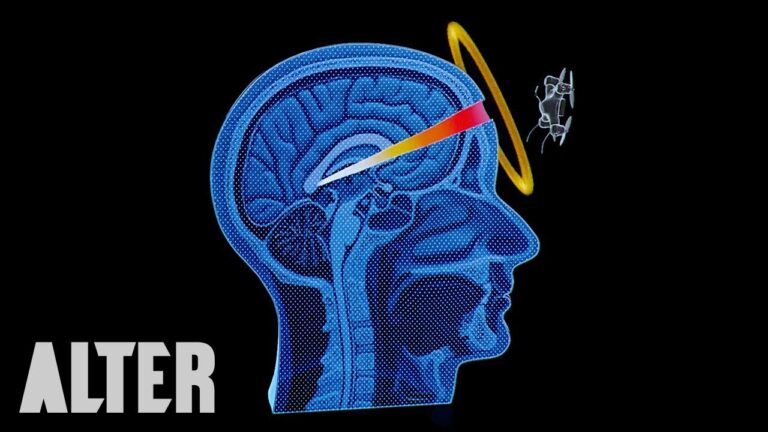by Catherine Austin Fitts and Carolyn Betts, Esq.
(1) Crime that pays is crime that stays.
There is reason to believe that Wall Street and those they represent are holding loans without collateral, multiple loans secured by the same properties, and other fraudulent instruments among the “troubled assets.” Based on the secret “Treasury Conference Call” with 800 Wall Street insiders, we know the deal proposed to be passed by Congress isn’t the real deal promised to Wall Street.
(2) This smells like obstruction of justice.
Bail-out without due diligence of so called “troubled assets” is a perfect way to hide documentation of financial crimes. It is also a perfect means to launder both the past ill-gotten gains and new federal money spent recklessly and without necessary safeguards and oversight mechanisms. Be very suspicious when they tell you “we just can’t tell what’s in these troubled assets.” We can assure you that the federal government has field offices all across the country that deal with significant amounts of real estate and mortgage assets on a daily basis. If Treasury refuses for more than a decade to comply with the laws, with approximately $4 trillion missing (and counting), it is not competent to manage $700 billion of taxpayer money while its arm is twisted by Wall Street.
(3) Wall Street owes the federal government money.
We need to get stolen money back from the banks that served as depositories for the US government (including trillions for which the Pentagon and HUD could not account) and punish them, not create another opportunity for them to game the system and engage in criminal enterprises to rob consumers. To the extent there has been regulatory wrong-doing, let’s not let the miscreants leave town with the evidence.
(4) Good guys are shut out.
A bail-out provides no way for honest leaders to come to the fore and use their creativity and expertise to restore balance and integrity to the system or for unproductive and poorly-managed banks that contribute to current over-capacity in the banking system to die a dignified death.
(5) This results in more investment in the “bubble economy.”
Spending massive amounts on non-productive uses (“buying” worthless credit default swaps, mortgages with no collateral and derivatives, which could even include the derivatives used to manipulate the precious metals markets) as opposed to productive uses (repairing infrastructure, creating alternative energy systems, supporting inventing and production of “green” products) is inflationary.
This bail-out will drive prices of food, water and energy up for the people who can least afford it.
(6) Bail-out does not result in capital circulating in healthy ways.
The bail-out of Wall Street and too-big-to-fail banks and insurance companies that are getting bigger by the minute by swallowing up other failing financial institutions (and creating more institutions that are “too big to fail”) does not result in trickle-down to those whose money was stolen in recent swindles (S&L, dot.com, current housing crisis), i.e., the taxpayers/middle class and working poor.
(7) These arrangements will result in more corruption.
Centralized “fixes” are sure to result in black holes, no-bid contracts and other scandals.
(8) The bail-out drains the real economy, rather than invests in the real economy.
The US economy can’t be productive or grow if consumers don’t have jobs and can’t afford to purchase goods and services. Real stimulation of Main Street is accomplished through productive investment, not bail-outs that shift money to unproductive sectors. We should use all of our precious resources to reinvest in our people in the real economy.
(9) It props up sectors that need to downsize and consolidate.
There is significant overcapacity in the financial and banking sectors. Brainpower and talent needs to stop blowing financial bubbles and shift to economic activities that create real value.
(10) It is a temporary “fix” to keep Wall Street afloat until after the election.
Our resources are better invested in permanent, long-term solutions. This bail-out will not fix anything. Rather, it will help the perpetrators get away and ensure that the ultimate day of reckoning is worse.
The Administration wants to drain the real economy to bail out Wall Street. It seems to us that the more appropriate plan would be to require Wall Street to return the $4 trillion plus that is missing and use that to rebuild the real economy.
We think the time has come to reverse the flow. Go to any business school in the country. That is what they teach. Money should move out of unproductive sectors into productive sectors. The bail-out does just the opposite.
“Just say NO!”
Related Reading:
Bailout Mo’ Money Catherine’s Blog, March 11, 2009






















































































































totally agreed, this is a crooked system, we need to work it out, not work around it.
Say No to Bail Out!
Let me add just one important thing. All of yor have many good points, butI didn’t see a word about prayer.
We ought to be praying for everyone involved. We should be praying for our legislators to make the make the right decision, for those who stand to lose much of their livelihood or property, for those who caused the whole problem i the first place, that they will will reform their lives and for many others affected. We ought to be praying for the elections, that the right persons will be chosen to lead, especiallly since the electorarte, who feels cheated, will not use his or her vote to punish even the good leaders in revenge for what’s happening.
Mark Y.
Mark Y.
I think we should all go to the polls and vote for Ron Paul. Lets do it.
Problems;
1. The Wall Street guys are smarter than the Washington guys
2. The Wall St guys have bought the Washington guys.
Solution;
PUT THEM ALL IN JAIL!!!
Problems;
1. The Wall Street guys are smarter than the Washington guys
2. The Wall St guys have bought the Washington guys.
Solution;
PUT THEM ALL IN JAIL!!!
Your point #8 is what Jack Bogle (founder of Vanguard) says. See his interview by Bill Moyers on 9/28/07 at PBS.org, as well as other Bogle sources/writings/interviews.
One correction. Business schools do in fact teach the exercise of finance capitalism in preference to productive capitalism. A study of the events of the past 30 years of de-industrialization would show that business schools have had a pernicious and deleterious effect on the economy of the world not just the US.